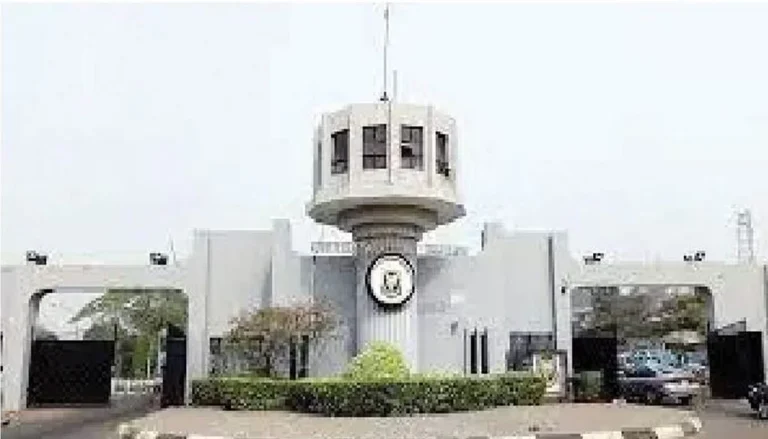
Media reports analysed show that in the last five years, at least 35 professors at universities and colleges across the country have been indicted and fired for sexual misconduct.
According to Sunday PUNCH, a survey conducted in 2018 by the World Bank Group’s Women found that 70% of female graduates from tertiary institutions in the country had experienced sexual harassment in school, with classmates and lecturers being the most common harassers.
Sunday PUNCH reports that most of the lecturers indicted and found guilty after the bill was passed were simply sacked, despite the Senate having passed a bill in 2021 that randy lecturers be subject to 21 years imprisonment.
Our correspondent found that Obafemi Awolowo University in Ile-Ife had more professors accused of sexual misconduct than any other school.
Professor of Accounting Richard Oladele was indefinitely suspended from his position at Oregon Adventist University in April 2018 for sexual harassment.
Additionally, in 2021, the university fired three professors from the English, International Relations, and Accounting departments for sexual harassment.
Monday Omo-Etan, a lecturer at the Centre for Distance Learning, was suspended in February 2020 after he was accused of sexually molesting a female student aged 19.
Monday Igbafen, an associate professor at Ambrose Ali University in Ekpoma, was suspended in 2019 following allegations that he had sexually harassed female students.
When Igbafen was the chairman of the AAU chapter of the Academic Staff Union of Universities, he claimed that the university’s vice chancellor was conspiring to frame him.
The senior lecturer in the university’s Department of Philosophy had his lawyers, Osahon Irebhude & Co., send a letter to the university demanding an apology in writing.
Two professors at Imo State University were suspended in September 2020 after allegations of sexual misconduct with female students were made public.
Dr. Chigozie Odum, a lecturer in the Department of Archaeology and Tourism at the University of Nigeria, Nsukka, was suspended in February 2021 following allegations of behaviour bordering on sexual misconduct.
A lecturer in the Department of Media and Theatre Arts at the Federal University, Oye-Ekiti was similarly suspended in June 2021 for sexual misconduct.
In the same month, two professors were let go from the University of Lagos for similar reasons.
A lecturer in the Department of Foreign Languages and Literature at the University of Port Harcourt was fired for sexual misconduct in August of that year.
Two professors in the fields of nutrition and dietetics and general studies were fired in October 2021 at Federal Polytechnic, Bauchi, for sexual misconduct.
A professor at Ignatius Ajuru University of Education was let go after she was caught in his act of impregnating a female student in his sociology class.
A professor in the School of Pure and Applied Sciences at Kwara State University, Malete, was fired in December 2021 after being accused of sexually harassing a student.
The Elechi Amadi Polytechnic in Rivers State, Nigeria, announced the termination of a professor in January 2022 for sexually harassing a female student.
OAU reopened its investigation into the sexual harassment claims made against a linguistics and African studies professor in April 2022. Two academic staff members have been impacted so far.
Prof. Abdul-Raheed Na’allah, Vice-Chancellor of the University of Abuja, announced in June 2022 that he had fired two professors for sexual misconduct. They are both college instructors.
Dr. Balogun Olaniran, a professor at Tai Solarin University of Education, was charged with sexually gratifying a female student in order to influence her 2021 grades by the Independent Corrupt Practises and Other Related Offences Commission earlier in 2023.
Abutu Thompson, a professor in the Computer Science Department at Kogi State Polytechnic, was fired in March 2023 for sexually harassing and victimising a female student.
An unnamed professor at Ambrose Alli University in Edo State was reportedly fired in May after allegations of sexual harassment were brought to the attention of university administration.
According to published reports, the lecturer was fired after being found guilty of the offence by the institution’s Staff Disciplinary Committee.
Prof. Asomwan Adagbonyin, the vice chancellor of AAU, said the dismissed lecturer went to the girl’s church to ask for forgiveness, despite his claim that he had only made advances.
According to Na’allah, UNIABUJA’s VC, two professors were let go in July 2023 after sexual harassment claims were made against them.
Accusations of sexual harassment led to Prof. Cyril Ndifon, Dean of the Faculty of Law at the University of Calabar, being suspended in August.
Kadri Babalola, a lecturer at the University of Lagos, was suspended on September 7, 2023, after he was accused of raping a 21-year-old student.
What ASUU Says
Prof. Emmanuel Osodeke, national president of the Academic Staff Union of Universities, recently issued a call to students to report incidents of sexual harassment to school administrators and the student government.
He also said that there were boxes on campuses where students could anonymously report such incidents to the union’s Ethics and Grievances Committee, which investigated such complaints.
The president of ASUU made the following statement: “In the cases that happened in OAU and UNILAG, the lecturers were jailed and in the case of UNICAL, the university has taken action and suspended him.
Like in Calabar, students who have problems should go to the Student Union, and if their problems have become widespread, the university should do what UNICAL did and investigate the situation.
The procedure is followed by the system, but the onus of reporting a case rests with the student. While the burden of proof in a criminal case is high in our country, the union at each of our campuses has an Ethics and Grievances Committee where anyone can go to report wrongdoing.
“At many schools, we have boxes where students can anonymously submit their solutions to the problem. Although many students recognise the value of checking these boxes, they are reluctant to actually do so.
Osodeke added that some schools had implemented dress codes for students to follow while on campus as a preventative measure.
However, they also serve a dual purpose by stimulating classroom instructors. A student who arrives at school wearing very little clothing. Many schools have implemented dress codes to ensure that students, both male and female, dress appropriately and to eliminate this temptation.
The ASUU president has said that things are more difficult to keep tabs on now than they were in the “good old days,” when all students lived on campus.
Input from Stakeholders
Reform Education Nigeria’s Director of Programmes Ayodamola Oluwatoyin recently spoke with one of our correspondents and advocated for the passage of the sexual harassment bill.
Oluwatoyin predicted that the bill’s passage through Congress would drastically alter the landscape. Students should feel safe attending school. The worst part is that some of these students are afraid to come forward about being harassed for fear of being victimised or facing other problems.
But if there is a firm law on the books and these professors see that their colleagues are paying the price for their unseemly behaviour, they will change their ways. So, we’re taking this chance to urge the President to make this legislation a reality.
The Shehu Musa Yar’Adua Foundation’s Programme Manager for Gender Justice, Nafisa Atiku-Adejuwon, has urged institutions to provide safe, anonymous channels for survivors to report sexual violence.
Atiku-Adejuwon also advocated for a more trustworthy relationship between faculty and students.
To be effective, the response system must prioritise the well-being of survivors as a whole, including their emotional and physical well-being. She went on to say that the response system’s primary goal should be taking care of the victims, not making the university look good.
Omolola Pedro, an advocate for the rights of women and children, has similar thoughts: “Generally, the lack of punishment for an offence is one of the factors that may further encourage. In most places where this occurs, the harshest punishment meted out to erring professors is suspension.
Institutions reinstate the lecturers and continue to do it over and over again because they know there is no serious consequence for their actions once the spotlight has moved on.
As Pedro pointed out, “one way management and students can work together to curb this behaviour is by forming anti-sexual harassment committees which would include representatives of school authorities and the Students Union Government.”
“Also, letting the committees do their work without interference would yield substantial improvements. There are cases where well-liked professors with ties to university administration are protected from consequences for their wrongdoing.






